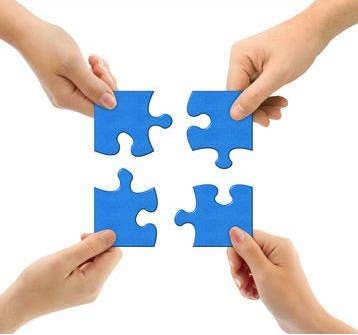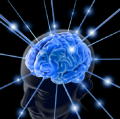Dementia describes a group of symptoms that affect the brain. Symptoms may be slight at first, but as they increase they can alter a patient’s ability to carry on the activities of daily living, alter personalities and impact relationships with caregivers. Some good news is that research demonstrates physical and mental exercise can have a positive effect on the brains of dementia patients.
Identification
The National Institute of Neurological Disease and Stroke states that dementia is not a unique disease, but is instead a group of symptoms that can have many causes. Some causes include specific illnesses such as Alzheimer’s or Huntington’s disease, and symptoms can appear as a result of brain tumors, nutritional deficiencies and reactions to medication. People with dementia might have difficulty solving problems and exercising sound judgment and be agitated or experience hallucinations. Depending on the cause of the dementia, its effects can possibly be halted or reversed.
Benefits
Both physical and mental exercises can help dementia patients. An article published in the October 2004 Archives of Physical Medicine and Rehabilitation documents a review of 30 studies that included evaluations of how physical exercise affected 2,020 elderly patients with cognitive impairment and dementia. The studies found that physical exercise improved cognitive function in these patients. The National Institute on Aging notes that mental exercise can benefit dementia patients’ reasoning and speed-of-processing abilities.
Cognitive Exercises
Cognitive, or mental, exercises for dementia patients include those that promote abilities in the areas of planning, language, logic and brain processing time. SharpBrains provides a list of 50 brain teasers designed to help patients improve in these areas. Teasers include games that: challenge the player to recognize an item missing from a pattern; stimulate the brain with math problems; and expand language skills. Crossword puzzles and math games are good sources of mental exercise. Playing timed games on a computer challenges the player to think and respond quickly, thereby improving mental agility.
Physical Exercises
Any physical activity that increases the heart rate, breathing and circulation, such as cardiovascular exercises, will benefit dementia patients. These exercises improve blood flow and the amount of oxygen carried to the brain. Choose exercises that the patient finds enjoyable, such as walking, swimming, riding a bicycle or playing tennis. If the patient enjoys the activity, he is more likely to perform the exercises for longer periods of time and repeat them more frequently during a given week.
Warning
A doctor or qualified therapist should always supervise a dementia patient’s physical exercise program. A doctor or therapist can evaluate the patient’s abilities and help design a suitable exercise program. The program can be expanded as the patient gains strength and confidence.
References
- National Institute of Neurological Disease and Stroke: Dementia Information Page
- Archives of Physical Medicine and Rehabilitation: Effects of Exercise on Persons with Dementia
- National Institute on Aging: Older Adults with Memory Impairment Benefit from Cognitive Training
- SharpBrains: Brain Teasers











